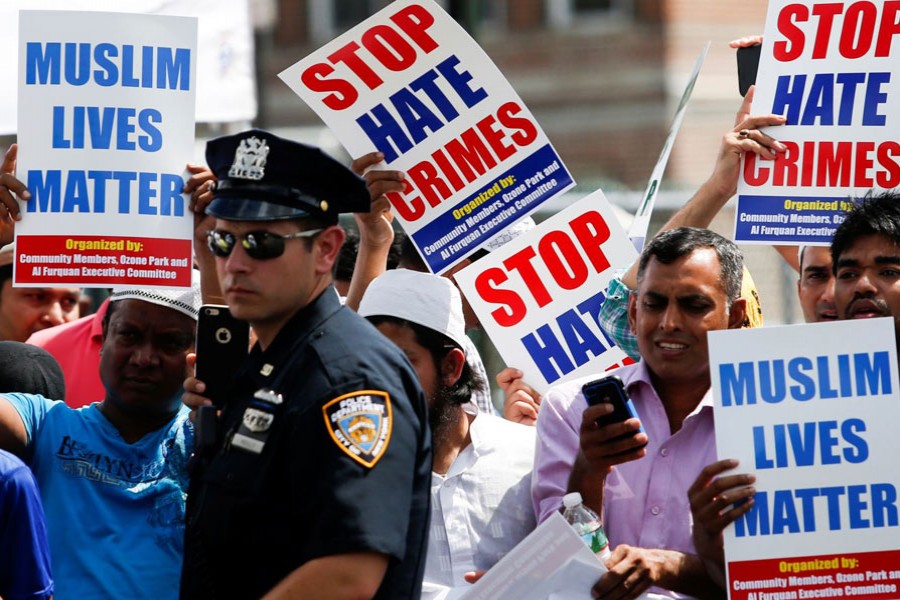Hate crime is a crime that is motivated by either intolerance or prejudice towards an individual's colour, religion, ethnicity, national origin, gender or disability. Although globalisation and the internet have promoted multiculturalism, hate crime has increased globally throughout the years.
A significant portion of the hate crimes is performed against Muslims. According to Statistica, the number of anti-Muslim assaults in the US reported to the FBI was an all-time high of one hundred twenty-seven in 2016. This figure was only thirty-three in the year 2007. But in nine years, the number of reported anti-Muslim assaults has increased by almost four times.

Hate crimes motivated by religion are the second largest category of hate crimes accounting for one-fifth of all reported in the US. Hate crimes against Muslims comprised of 24 per cent of all hate crimes conducted against religion. According to Vox, in the month after Trump was elected as president, more than 860 reports of hate assaults were reported to the Southern Poverty Law Center. Some of it includes teachers making Islamophobic comments and mosques being burned. Does the state law against hate crime influence the number of hate assaults?
Experts have agreed that laws do not necessarily prevent a hate crime because when one is conducting an assault, he or she doesn't think about the penalty that will follow. But these laws are still important because their existence often devotes funds to police departments to initiate liaison programmes to closely work with the community for prevention.


